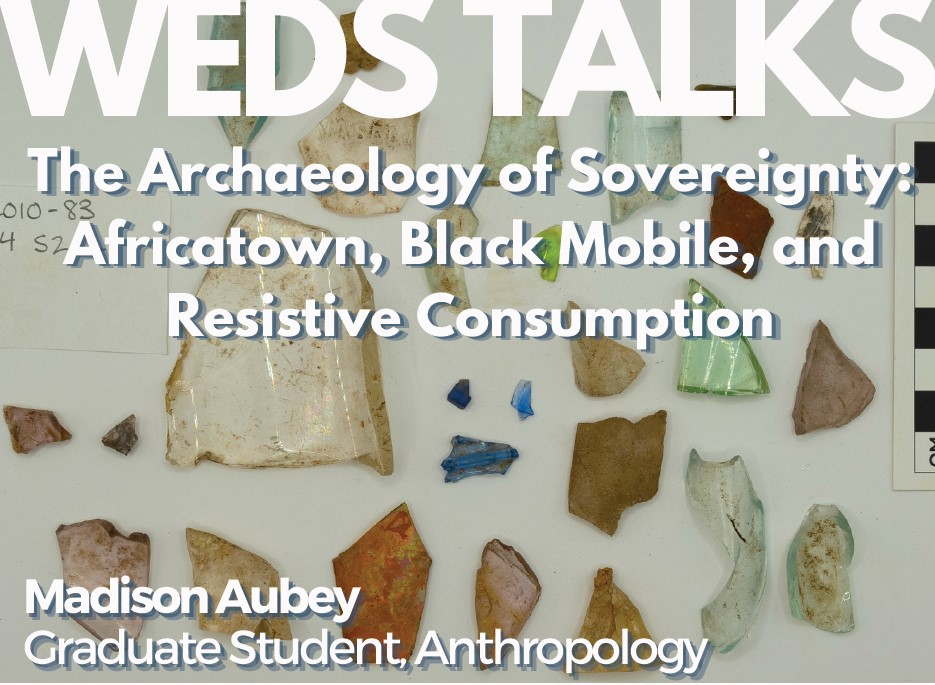Event: Weds Talk: Ancient Fish Consumption in Southwestern Taiwan: Two Case Studies
Event Details

ABSTRACT: As the second most prolific exporter of cotton in the mid-19th century, Mobile, Alabama was built by enslaved laborers. As such, after the Emancipation Proclamation, there was, necessarily, a dramatic reordering of both economic and social structures. In addition to this new economic landscape, newly emancipated Black people gained geographic autonomy, with the ability to live far from the prying eyes of a former overseer or enslaver. By doing a comparative analysis of the archaeological material found at two free Black sites in what was at the time unincorporated Mobile-I explore the different ways in which 'free' Black life was carried out in the American South directly after Emancipation. The two sites, one in Africatown, Alabama, and the other near Magnolia cemetery highlight opposite ends of the spectrum of Afro-diasporic experiences in America at the time (generational enslavement vs. 5 years of enslavement) allowing for multifaceted representation of Black life. Additionally, as I engage with these two sites through collections already excavated, I discuss the value of collections-based research, especially in the archaeology of marginalized communities.
BIO: Madison Aubey received her BA in Anthropology from Columbia University. This past Spring, she completed her MA in Anthropology at UCLA. Her research has focused on broadening academic understandings of the African Diasporic experience in the United States and her work has taken her across the American South as well as the hinterlands of the Republic of Bénin. She is continuing this same line of research, with a focus on foodways, for her doctoral research.


